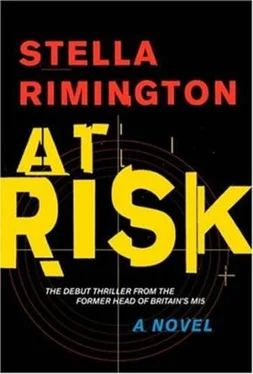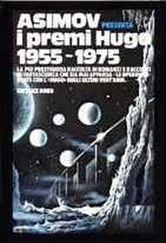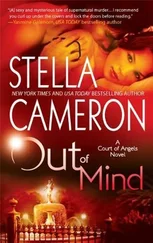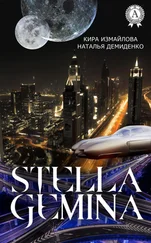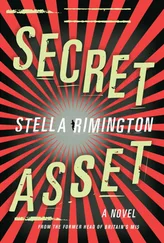There was a brief silence, and then one of the soldiers stepped forward, and with an air of brisk formality fired two further shots into the back of the fallen man’s neck.
Rain streamed from Liz’s face as she stared at the spotlit tableau. She felt Mackay take her arms from behind, pinioning her, and wrenched herself free. She could feel the blood on her face congealing now, and the rain streaming through her hair and down her back. She was almost weeping with fury. “Do you realise- do you fucking realise -what you’ve done?”
Mackay’s voice was patient.
“Liz,” he said. “Get real.”
Footsteps, which she disregarded. Someone else’s problem. She began to drift away again, but heard-as if from a great distance-someone speak her name. Then the footsteps again.
Unwillingly, Liz opened her eyes. She couldn’t remember where she was, but from the even bleed of the light through the thin cotton curtains she estimated that it was mid-morning. She blinked. The room was spacious and its walls sky-blue. Between her bed and the window stood a stainless-steel drip apparatus and an oxygen canister on a trolley. There was a breathing tube in her nostrils, her bed was banked with pillows, and the mattress had been tilted at a comfortable thirty or so degrees above horizontal. From outside, she could hear the distant grumble of jet engines.
Slowly, the sedative fog cleared. It was over, and Faraj Mansoor and Jean D’Aubigny were dead. But parts of the previous evening, Liz knew, were lost to her for ever. The bomb blast and her subsequent concussion had ensured that. Something that she remembered clearly, and which afforded her an obscure gratification, was that after witnessing Mansoor’s death, she had refused Bruno Mackay’s help in returning to the emergency services vehicles. She had walked half the way and then fallen to her knees, and an Army Air Corps paramedic crew had run to meet her with a stretcher. She remembered the sting of the needle in her arm, the soft kiss of the rain on her face, sirens, and blue lights. Then there had been the helicopter’s skywards surge, its engine’s narcotic thrum, and the faint crackle of radio communications. Then nothing.
She pulled the breathing tube from her nostrils. Her head ached and there was a thick, stale taste in her mouth. The temperature was ambient, neither hot nor cold. She was wearing a white hospital gown which laced at the back.
The door opened. It was a young blonde woman in combat pants and a USAF T-shirt. “Hi there! How are you this morning?”
“Er… OK, I think.” Liz blinked, struggling to an upright position. “Where am I?”
“Marwell. The Air Force base hospital. I’m Dr. Beth Wildor.” She had a brisk manner and dazzling teeth.
Liz nodded. “Ah, OK. Um… Can I get up?”
“I’ll just have a quick look at you?”
“Fine.”
For the next ten minutes Dr. Wildor peered into her eyes and ears, tested her hearing, took her blood pressure, and conducted other tests, noting the results on a clipboard.
“You have impressive powers of recovery, Miss Carlyle. You were not a well woman when they brought you in last night.”
“I’m afraid I don’t remember much about it.”
“We call it blast trauma. There are elements of the experience you probably won’t recover, but perhaps in this case that’s not such a bad thing.”
“Did anyone die?”
“Apart from the bombers, you mean? No. There were injuries, but no loss of life.”
“Thank God.”
“Absolutely. You’re police, right?”
“Home Office. Can I get up now?”
“You know, Miss Carlyle, I think I’d rather you took it easy. Why don’t you receive your visitor, and when I’ve done my round, we’ll talk?”
“I have a visitor?”
“Indeed you do,” she said with a conspiratorial flash of her teeth. “And he seems most concerned about you.”
“If his name is Mackay, I have no wish to speak to him.”
“I don’t think that was the name he gave. It was…” she glanced at the clipboard, “a Mr. Wetherby.”
“Wetherby?” She felt an inexplicable flutter of surprise. “He’s here?”
“Right outside.” She regarded Liz levelly. “I take it he’s welcome?”
“He’s very welcome,” said Liz, attempting without success to wipe the smile from her face.
“Oh- kay ! Perhaps you’d like a minute or two to freshen up?”
“Perhaps I would.”
“I’ll tell him five.”
When Dr. Wildor had gone, Liz swung her legs over the edge of the bed and walked to the washbasin. She felt unsteady, and was shocked by the face that regarded her from the mirror. She looked pinched and tired, and there was a dark mask of bruising around her eyes from the blast. She did the best job she could with a vacuum-sealed washing pack that she found at her bedside, and feeling slightly absurd and fraudulent, rearranged herself decorously in the bed.
Wetherby came in carrying flowers. She would not have found it easy to imagine such a thing, but here he was waving a rather lurid spray of semi-tropical blooms.
“Can I put these somewhere?” he asked, looking around him with worried, unseeing eyes.
“In the sink, perhaps? They’re lovely, thank you.”
He busied himself for a moment with his back to her. “So… how do you feel?” he asked.
“Better than I look.”
He sat himself a little awkwardly on the end of the bed. “You look… Well, I’m glad it’s not worse.”
It struck Liz that hospital visits were a grimly regular feature of Wetherby’s life, and she felt a little ashamed to be lying there like a tragic heroine when, in truth, there didn’t seem to be anything seriously wrong with her. “I gather there were no deaths on our side?”
“Detective Superintendent Whitten’s in the room next door. He was hit by shrapnel-the bomb casing, they think-and lost a fair bit of blood. A couple of the Army people were also cut about quite badly, and there are half a dozen blast trauma cases like yours. But as you say, no deaths. For which, in large part, we have you to thank.”
“There’s been no shortage of corpses in all of this.” She looked away. “You know about Faraj Mansoor, don’t you? Who he really was?”
He looked at her quizzically. “Would you like some breakfast while we talk?”
“Very much.”
He glanced at the door. “I’ll ask them to bring something. What would you like?”
“I’d like to get dressed. Find a canteen or something. I hate eating in bed.”
“Are you allowed out? I wouldn’t want to get on the wrong side of that woman with the teeth.”
“I’ll risk it.” Liz smiled, conscious of the faint awkwardness of protocol that prevented them from using each other’s names. Buoyed by a sudden reckless effervescence, she stepped out of bed in her shapeless gown, and twirled around.
Wetherby stood, bowed with ironic chivalry, and made his way to the door.
She watched him go, and then remembering that her gown had no back to it, began to laugh. Perhaps she didn’t feel completely normal.
Her clothes were nowhere to be found. In the locker by the bed, however, some thoughtful hand had placed brand-new underwear, training shoes, a GO WARTHOGS! T-shirt, and a zip-top grey tracksuit. All fitted perfectly. Thus attired, she opened the door.
“Follow me,” said Wetherby. “Fetching ensemble, by the way.”
They stepped out on to the tarmac. It was bitingly cold. In the distance, glinting dully beneath a shelf of black cloud, was a phalanx of Thunderbolt attack jets, with their Gatling cannons pointed skywards.
“ ‘They make a wilderness, and call it peace.’ ”
Читать дальше
